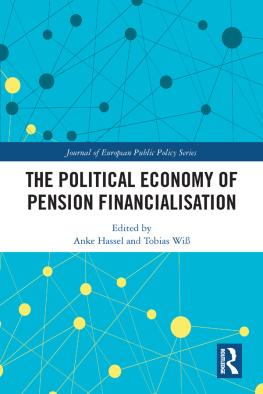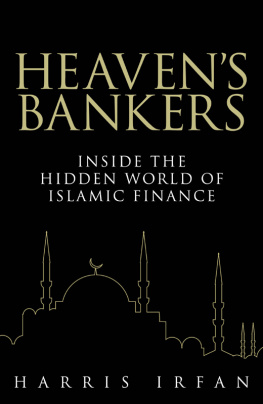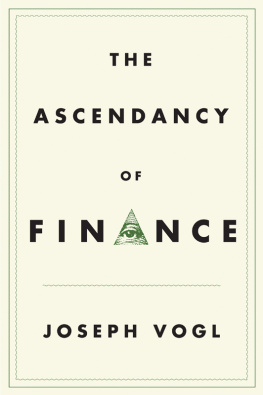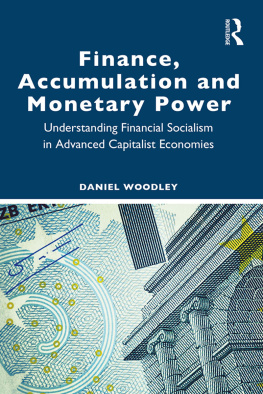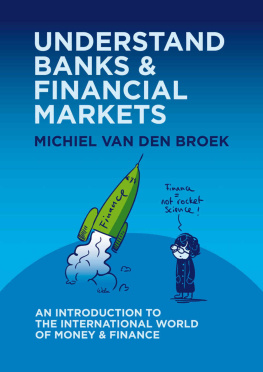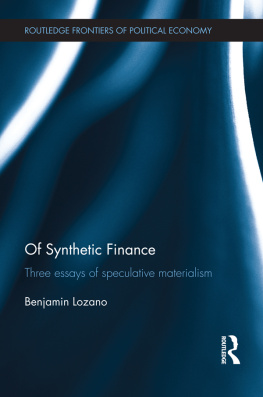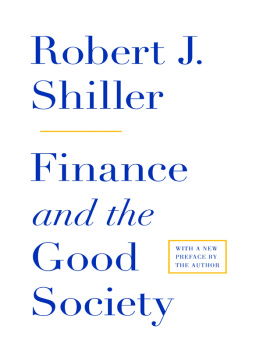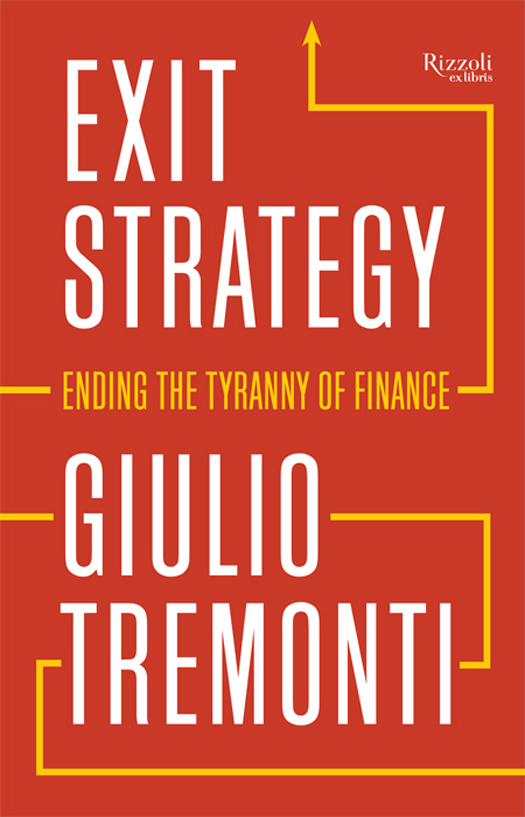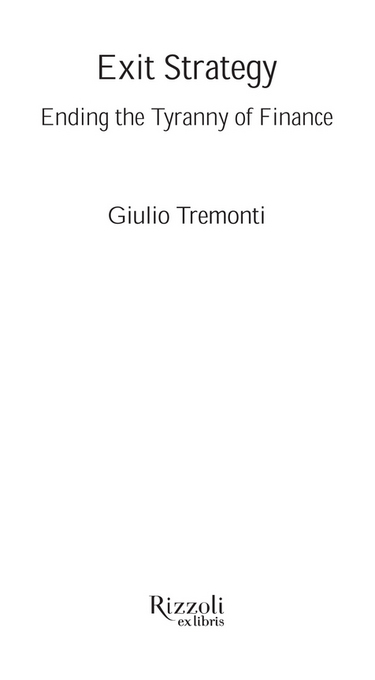First published AS HARDCOVER EDITION in the United States
First published in the United States of America in 2012 by
Rizzoli Ex Libris
An imprint of Rizzoli International Publications, Inc.
300 Park Avenue South
New York, NY 10010
www.rizzoliusa.com
Translated by Emily Kate Price
This ebook edition
2012 Rizzoli International Publications
2012 RCS Libri S.p.A., Milano
All rights reserved. No part of this publication may be reproduced, stored in a retrieval system, or transmitted in any form or by any means, electronic, mechanical, photocopying, recording, or otherwise, without prior consent of the publishers.
eISBN: 978-0-8478-4027-4
v3.1
Contents
III The Financial Market:
When Geography Meets Alchemy
VIII Mays Great Illusion and
the Deauville Autumn
2 Preface to the Japanese Edition
of The Fear and the Hope by
Former Governor of the Bank of
Japan Toshihiko Fukui
3 From the First Few Pages of
The Fear and the Hope
4 The Twenty Years That Changed
the Structure and Speed of the World
9 The Statistics of the
Common European Market
10 The Financial Interdependencies
Between the Banking Systems of the
Six Main European Countries with
Regard to the Economies of
Other Countries
11 Three Intervention Mistakes
After Deauville
12 Speech Given at Villa dEste in
CernobbioFriday, September 7, 2007
Exit Strategy
Introduction
Noahs Ark was built by amateurs. The Titanic was built by professionals.
The former, the ark, is an ancient image of salvation. The latter, the Titanic, is the epitome of disaster in our times.
The first vessel, the fantastical one, worked and still has the capacity to work because it comes to man from his creator spirit, who commanded, Make yourself an ark of cypress wood.
The second type of vessel, the technically correct one, can work, but it can also fail. And it often does fail if it is made by man and for man only. It fails above all if it is made by the worst part of mankind: the selfish gene, the matrix of a process whose ideology is a form of social Darwinism applied to economics, proof that homo homini lupus est, or man acts as wolf toward his fellow man.
Today, lupine mans ideal hunting ground is the financial market. Due to an extraordinary process of concentration and degeneration in mental, social, judicial and economic structures, the financial market today is seen as the center of the market, which itself is seen as the center of human life. A metaphysical entity, an oracle, with its ritualistic and mysterious dealings, autistic and mathematical, the financial market, positioned as an arcane and almost sacred space, is seemingly able to judge us, save us and damn us, both as peoples and as individuals. The financial market, as it has developed and been organized over the years, can and does do this, and it has been left to do this freely, putting profit before justice, reducing our attention to morality and policy, making old regulatory standards unimportant, zeroing out ethical values and privatizing the law, allowing the few powerful figures who rule the planet to prey unmercifully upon the weak, replacing empathy with selfishness, dismissing the idea that we survive precisely because we are socially-minded creatures and not the opposite and, ultimately, taking us from order to chaos.
The financial markets potent dominant ideology tends to exclude the best aspects of human nature, reducing life to economics and economics to finance. Thus it becomes a monster that today feeds on us and later will feed on itself.
A few true believers attempt to humanize this monster in order to make it approachable. They create an anthropomorphic image of it, speaking in hushed tones, for example, of market sentiment.
This is all very far from Adam Smiths market bible, The Wealth of Nations, a study of the nature and causes of that wealth.
Wealth matters, but so do nations. For centuries they have anchored the civic values of their communities. Those values historically were based on moral responsibility and political structures. However, todays wealth is slowly on its way to destroying these nations, and it will in the end destroy itself, too. This dual destruction will be as much political as it is economic.
This destructive process and its ongoing development will be illustrated in the pages that follow. You will also find a summary of it in the diagrams beginning on diagrams that clearly and undeniably demonstrate how a new form of capitalism has developed over the last twenty years. That new form of capitalism developed on the backs of globalization and then via the Internet. This is not, as Marx would have it, a capitalism stuck in dialectic and torn by the conflict between constant capital and variable capital, the former consisting of the means of production and goods and circulating capital, and the latter of the workforce. This is something else. Unexpectedly, at this time in history, the original financial core of circulating capital has evolved and expanded naturally through globalization and the Internet. It has steadily accumulated so much force that a completely new type of capital has resulted: dominant capital, the basis of the transnational superpower of the financial market. In its current form, it expresses and establishes the modern dictatorship of money.
. This process may have been developed on the industrial and global scale that is now typical of techno-finance, but it is not far removed from the mad and fatal bargain between Faust and Mephistopheles.
Why and how did this degenerative and destructive process develop? Through what types of mechanismsphysical, political, material, mental, real or symbolic, ethological or practical? And what can be done to stop it?
One thing is certain: The crisis were currently experiencing did not come from nowhere. It hasnt happened by chance. It was not caused by an obscure and unknown nemesis. It is the result of mans actions.
What follows here is a narrative that lies somewhere between memoir and journalism. In these pages are things that I saw and experienced, both during the last five years since the explosion of the financial crisis in the summer of 2007 and before that.
These are reflections and affirmations from international summits and conferences, but from the very beginning I heard them repeated verbatim in many other places: from the Universit Cattolica (Milan) to Chatham House (London), from the New World, New Capitalism conference in Paris to the Central School of the Chinese Communist Party in Beijing. I heard them at universities such as Freiburg and Yale and at
In any case, being on the inside helped me better to understand the situation. Its one thing to read articles in the press and official documents, but quite another to see the actions of individuals and forces that have created (or failed to create) the policies.
Finally: this book is in part an affirmation, in the truest sense of the word. Much of what I predicted in my
And this book is in part a modification of that one, as it discusses things that couldnt have been predicted back then. It was already possible to predict the crisisthe domino-like collapse of the financial pyramids, the global megabanks of Wall Street. However, it was simply impossible to predict when and how the crisis would occur: which day, which bank, what the effects would be, how intense it would be. And it was certainly impossible to predict which policies would be adopted to manage it.


